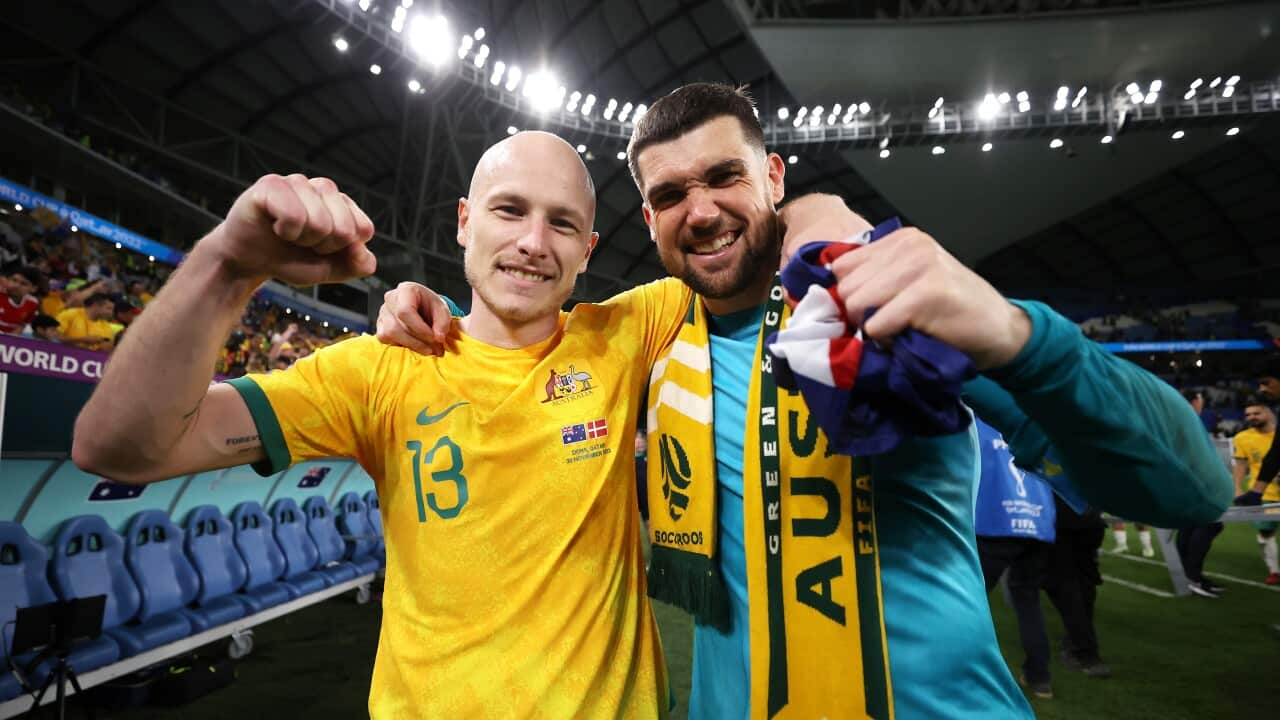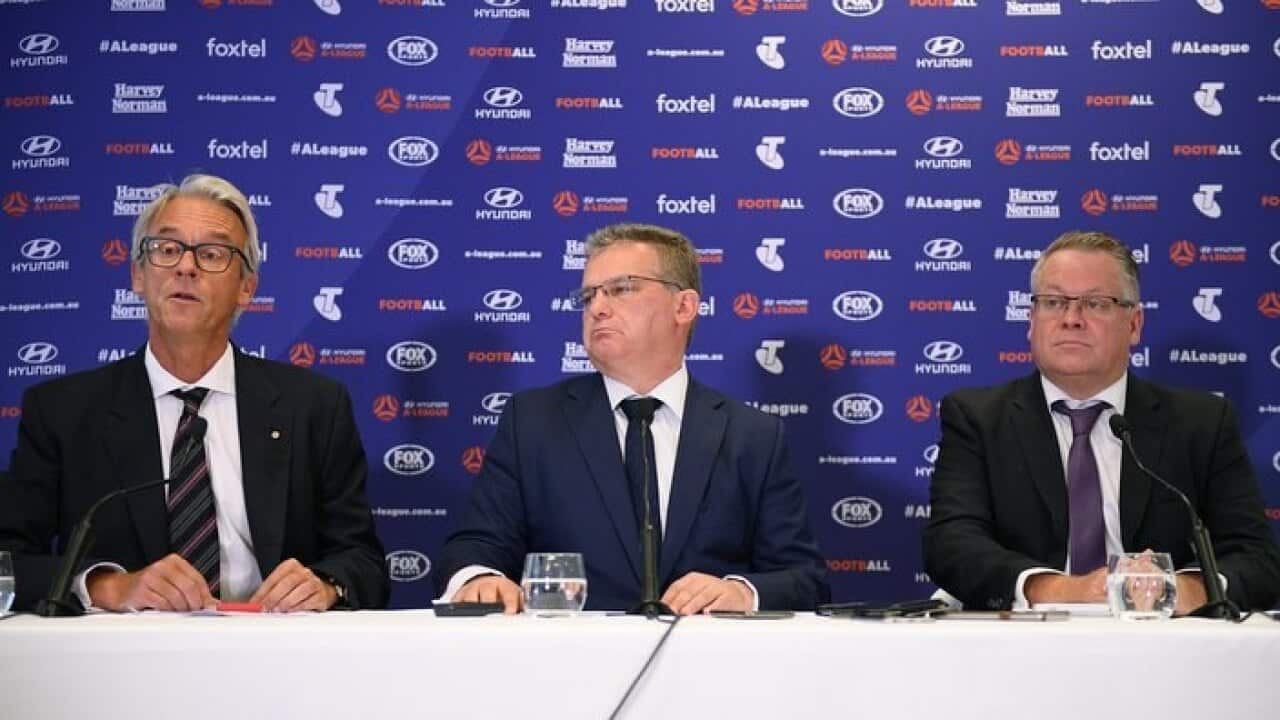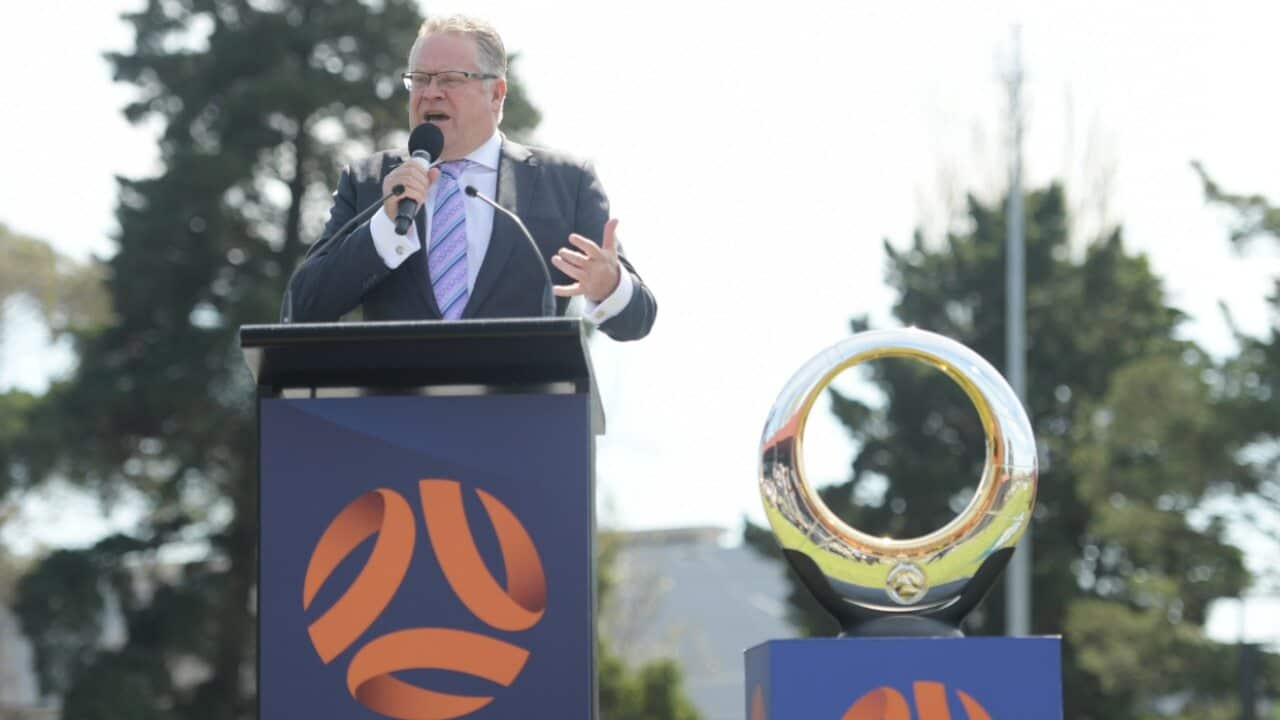Create your to stream all 64 matches of the FIFA World Cup 2022ᵀᴹ live and free any time on your favourite device.
Football is very much centre-stage in Australia at the moment, with public interest in the game at its highest levels ever with the Socceroos’ breakthrough performance on the world stage coupled with the upcoming Women’s World Cup to be hosted jointly by Australia and New Zealand.
Football Australia CEO, James Johnson sat down with SBS analyst Craig Foster in the SBS Sydney studios to talk about the direction of the game in the wake of the Australian men’s team’s performance in Qatar.
“Football is the future for Australia,” said Johnson, “we are a local but global game and the world is becoming more global. Through our sport, you can engage with any part of the world, that’s not something other sports can do.
“We’re a great community, all different types of people and it’s very multicultural. I think our sport best represents modern Australia.”
The Socceroos exemplified that multicultural background, nine of the 26 athletes were born overseas, and a variety of different backgrounds were represented within the squad.
They outperformed their pre-tournament ranking to win through to the round of 16 and gave World Cup finalists Argentina a tough match, inspiring scenes of fervour around the country as tens of thousands flocked to live sites and millions tuned in to watch the national team.
“It was an amazing campaign,” said Johnson. “We look at the whole campaign, going back two-and-a-half years and this team had the most complex campaign that we’ve ever been in. Most of our home games were away because we had our borders shut and it was a really complex process to get to the World Cup.
“To do so well on the sporting side was fantastic, but the thing that made me so proud was seeing the scenes where the community came together and really united behind the Socceroos. That was something that meant a lot to the team over in Qatar."
The challenge now is harnessing that passion and energy and building it into a future where football maintains that position in the mainstream of Australian society.
“I think we’re in a golden era for Australian football,” said Johnson. “We’ve just come off a great men’s campaign, and we’re the one team coming back from the World Cup that doesn’t have to wait four years for another World Cup - we are hosting our own Women’s World Cup in July.
“I think that period between then and now is going to be a really special time and Australian football deserves its time in the sun.”
Key to that is getting the national teams playing matches against high-profile international competition on a regular basis. Johnson in particular called attention to the international fixture window in March for football fans in Australia.
“We will be bringing three teams out here for that (March) window,” said Johnson, “one of those teams has a good chance of winning the (Women’s) World Cup, we’ll announce that soon.
“The men’s team will also have a window in March and they will be in Australia. We haven’t yet secured a team but we’re looking at, and would like to play, top opposition. I would like to see that become a normal occurrence for the national team.
“The Australian football community gets to see the best players and teams in the world and we get to test our national teams. That’s the focus for the national teams.”
Football Australia plans also extend to building on the Women’s World Cup and bringing a legacy that football fans and participants will reap the benefits of for generations to come. This includes new community football hubs to come from the national team bases for the upcoming tournament, more pitches available for matches to meet the massive participation levels around Australia, and programs that will help increase female leadership within the sport.
Johnson also spoke in general terms about a program that focuses on utilising Olympics funding in the drive towards Brisbane ’32, and looking into centralised training programs at either state or national level that they can explore with government support.
With football fans currently in dispute with the Australian Professional League's administration over an announced deal that will see the finals contested in Sydney for the next three years in both the men’s and women’s leagues, Johnson said that Football Australia was looking to further develop plans for a second-tier competition.
There has been a lot of talk around the possibility of promotion and relegation that would bring Australia into line with most footballing federations around the world, but the process is getting into gear, according to Johnson.
“We’ll be going into an expression of interest process in January or February,” said Johnson. “That will be something that will help Australian football, it will create more opportunities for younger players to get more match minutes, which Graham (Arnold) has talked so much of.
“We’ll really try to connect that second-tier to our current NPL structure and bring an authentic football feel to that competition.”
Though there will be disagreements about the direction of football in Australia, with fans and every level of the sport not shy on opinions about how to progress, there can be little doubt about the fact that the national teams and national plans are bringing football to an ever-growing base in Australia.
For a detailed discussion of the Australian men’s and women’s national teams,









